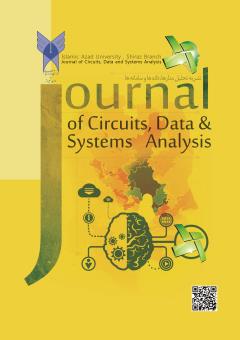Application of Machine Learning in Detection and Prevention of Money Laundering with Cryptocurrencies
Subject Areas : Computer Engineering and IT
Mojtaba Goodarzi
1
,
Mahdi Khaghani Esfahani
2
![]() ,
Mohammad Ali Kanani
3
,
Mohammad Ali Kanani
3
1 - Department of Humanities, Criminal Law and Criminology, Kish International Branch, Islamic Azad University, Kish Island, Iran
2 - Department of Humanities, Criminal Law and Criminology, Research Institute for the Development of Humanities (SAMT), Tehran, Iran
3 - Department of Humanities, Criminal Law and Criminology, Roodhen Branch, Islamic Azad University, Tehran, Iran
Keywords: machine learning, cryptocurrency transactions, money laundering, criminal policy.,
Abstract :
Money laundering, as one of the major challenges of financial systems, with the emergence of cryptocurrencies constantly breaks the boundaries of complexity and creates various types of crime. Cryptocurrencies have become an attractive tool for conducting illegal financial activities, including money laundering, due to their special features such as anonymity and the possibility of fast and cross-border transfers. "Machine learning" can be effectively used to identify suspicious patterns and prevent money laundering in the field of cryptocurrencies and decentralized financial systems. However, the success of this approach requires the formulation and implementation of a smart criminal policy that both exploits the opportunities arising from cryptocurrency technology and minimizes its risks. Using descriptive-analytical methods and content analysis, the article focuses on the legal, regulatory, and technical challenges associated with the use of machine learning in identifying money laundering in cryptocurrencies. Emphasizing the importance of international legal cooperation in formulating a smart criminal policy, machine learning models can play a vital role in strengthening the monitoring and prevention of financial crimes arising from/related to cryptocurrencies such as money laundering.
[1] ع. محمودی, ا. احمدی, و ر. علی پور, “تأثیر قانون مبارزه با پولشویی بر کشف جرم منشأ و پیشگیری از فعالیتهای اقتصادی مجرمانه در ایران,” پژوهشنامه حقوق کیفری, no. Online First, Oct. 2023, https://doi.org/10.22124/jol.2023.25133.2396
[2] م. مددی و س. قماشی, “جستاری در پولشویی از طریق ارزهای رمزنگاری شده” مطالعات حقوق کیفری و جرم شناسی, vol. 51, no. 2, Feb. 2022, https://doi.org/10.22124/jol.2023.25133.2396
[3] ش. عبدالهی قهفرخی, ب. پاکزاد, ح. عالی پور و م. الهی منش, “پیشگیری از پولشویی الکترونیکی: رویکرد دفاعی و رویکرد هجومیhttps://doi.org/10.22034/jclc.2021.290298.1510,” JCLC, vol. 9, no. 18, Jan. 2022
[4] م. حاجی دهآبادی و م. خاقانیاصفهانی، "گونهشناسی سیاست کیفری فنی در قبال جرم رمزنگاری اطلاعات از منظر آزادیگرایی و امنیتگرایی،" آموزههای حقوق کیفری، vol. 10, no. 5, 1392. https://dorl.net/dor/20.1001.1.22519351.1392.10.5.4.0.
[5] Dreżewski, J. Sepielak, and W. Filipkowski, “The application of social network analysis algorithms in a system supporting money laundering detection,” Information Sciences, vol. 295, pp. 18–32, Feb. 2015. https://doi.org/10.1016/j.ins.2014.10.015.
[6] Y. Dorogy and V. Kolisnichenko, "Blockchain transaction analysis: A comprehensive review of applications, tasks and methods," System Research and Information Technologies, no. 4, pp. 37–53, 2023https://doi.org/10.20535/srit.2308-8893.2023.4.03
[7] Y. Zhang and P. Trubey, "Machine learning and sampling scheme: An empirical study of money laundering detection," Computational Economics, vol. 54, no. 3, pp. 1043–1063, 2018 https://doi.org/10.1007/s10614-018-9864-z.
[8] S. R. Sandeep, S. Ahamad, D. Saxena, K. Srivastava, S. Jaiswal, and A. Bora, "To understand the relationship between machine learning and artificial intelligence in large and diversified business organisations," Materials Today: Proceedings, vol. 56, pp. 2082–2086, 2022. https://doi.org/10.1016/j.matpr.2021.11.409
[9] J. Lorenz, M. I. Silva, D. Aparício, J. T. Ascensão, and P. Bizarro, "Machine learning methods to detect money laundering in the bitcoin blockchain in the presence of label scarcity," in Proceedings of the First ACM International Conference on AI in Finance (ICAIF ’20), 2020. https://doi.org/10.1145/3383455.3422549
[10] M. Ramalingam, G. C. Selvi, N. Victor, R. Chengoden, S. Bhattacharya, P. K. R. Maddikunta, D. Lee, Md. J. Piran, N. Khare, G. Yenduri, and T. R. Gadekallu, "A comprehensive analysis of blockchain applications for securing computer vision systems," IEEE Access, vol. 11, pp. 107309–107330, 2023. https://doi.org/10.1109/access.2023.3319089
[11] O. Japinye, "Integrating machine learning in anti-money laundering through crypto: A comprehensive performance review," European Journal of Accounting, Auditing and Finance Research, vol. 12, no. 4, pp. 54–80, 2024. https://doi.org/10.37745/ejaafr.2013/vol12n45480
[12] E. Petterson Ruiz, J. Angelis, and et al., "Combating money laundering with machine learning – Applicability of supervised-learning algorithms at cryptocurrency exchanges," *Journal of Money Laundering Control*, vol. 25, no. 4, pp. 766–778, 2021. https://doi.org/10.1108/jmlc-09-2021-0106
[13] H. Almeida, P. Pinto, and A. Fernández Vilas, "A review on cryptocurrency transaction methods for money laundering," in *Proceedings of the 5th International Conference on Finance, Economics, Management and IT Business*, 2023. https://doi.org/10.5220/0011993300003494
[14] C. Wronka, "Money laundering through cryptocurrencies - Analysis of the phenomenon and appropriate prevention measures," *Journal of Money Laundering Control*, vol. 25, no. 1, pp. 79–94, 2021. doi: [10.1108/jmlc-02-2021-0017](https://doi.org/10.1108/jmlc-02-2021-0017).
[15] F. M. J. Teichmann and M.-C. Falker, "Money laundering via cryptocurrencies – Potential solutions from Liechtenstein," Journal of Money Laundering Control, vol. 24, no. 1, pp. 91–101, 2020. doi: 10.1108/jmlc-04-2020-0041
[16] G. L. Gray, "An exploration of the money laundering associated with the Bitfinex Bitcoin hack," Journal of Emerging Technologies in Accounting, vol. 21, no. 1, pp. 43–57, 2024. doi: 10.2308/jeta-2023-017
[17] B. N. Pambudi, I. Hidayah, and S. Fauziati, "Improving money laundering detection using optimized support vector machine," in 2019 International Seminar on Research of Information Technology and Intelligent Systems (ISRITI), 2019. doi: 10.1109/isriti48646.2019.9034655.
[18] A. Gupta, D. N. Dwivedi, J. Shah, and A. Jain, "Data quality issues leading to sub-optimal machine learning for money laundering models," Journal of Money Laundering Control, vol. 25, no. 3, pp. 551–555, 2021. doi: 10.1108/jmlc-05-2021-0049.
[19] Y. Suga, M. Shimaoka, M. Sato, and H. Nakajima, "Securing cryptocurrency exchange: Building up standard from huge failures," in Lecture Notes in Computer Science, pp. 254–270, 2020. doi: 10.1007/978-3-030-54455-3_19.
[20] زهرا ایزدی و نسترن ارزانیان، «پیشگیری از جرایم پولشویی و کلاهبرداری در بستر استفاده از رمزارزهای جهانی»، فصلنامه رهیافت پیشگیری از جرم، دوره 2، شماره 1، صفحات 1-14، 1398.
[21] N. Thoiba Singh, M. Mehra, I. Verma, N. Singh, D. Gandhi, and M. Ahmad Alladin, "Advancing crime analysis and prediction: A comprehensive exploration of machine learning applications in criminal justice," in 2024 2nd International Conference on Intelligent Data Communication Technologies and Internet of Things (IDCIoT), 2024. doi: 10.1109/idciot59759.2024.10467221


